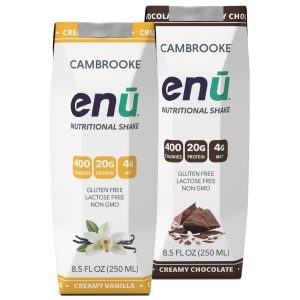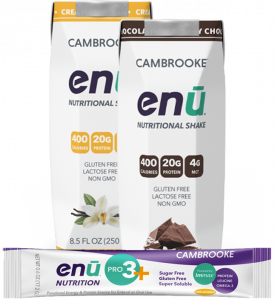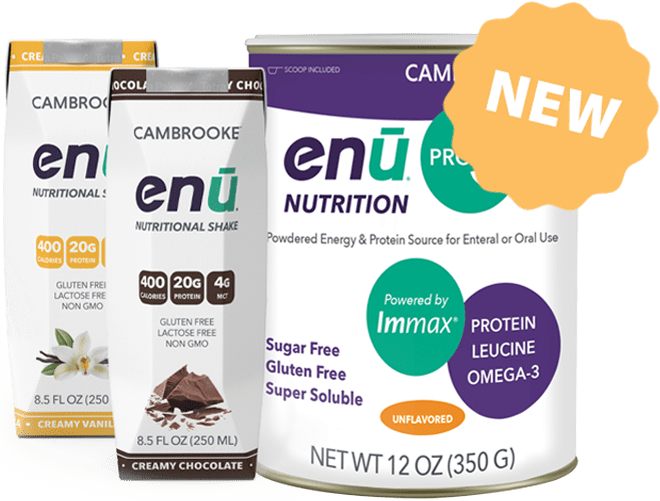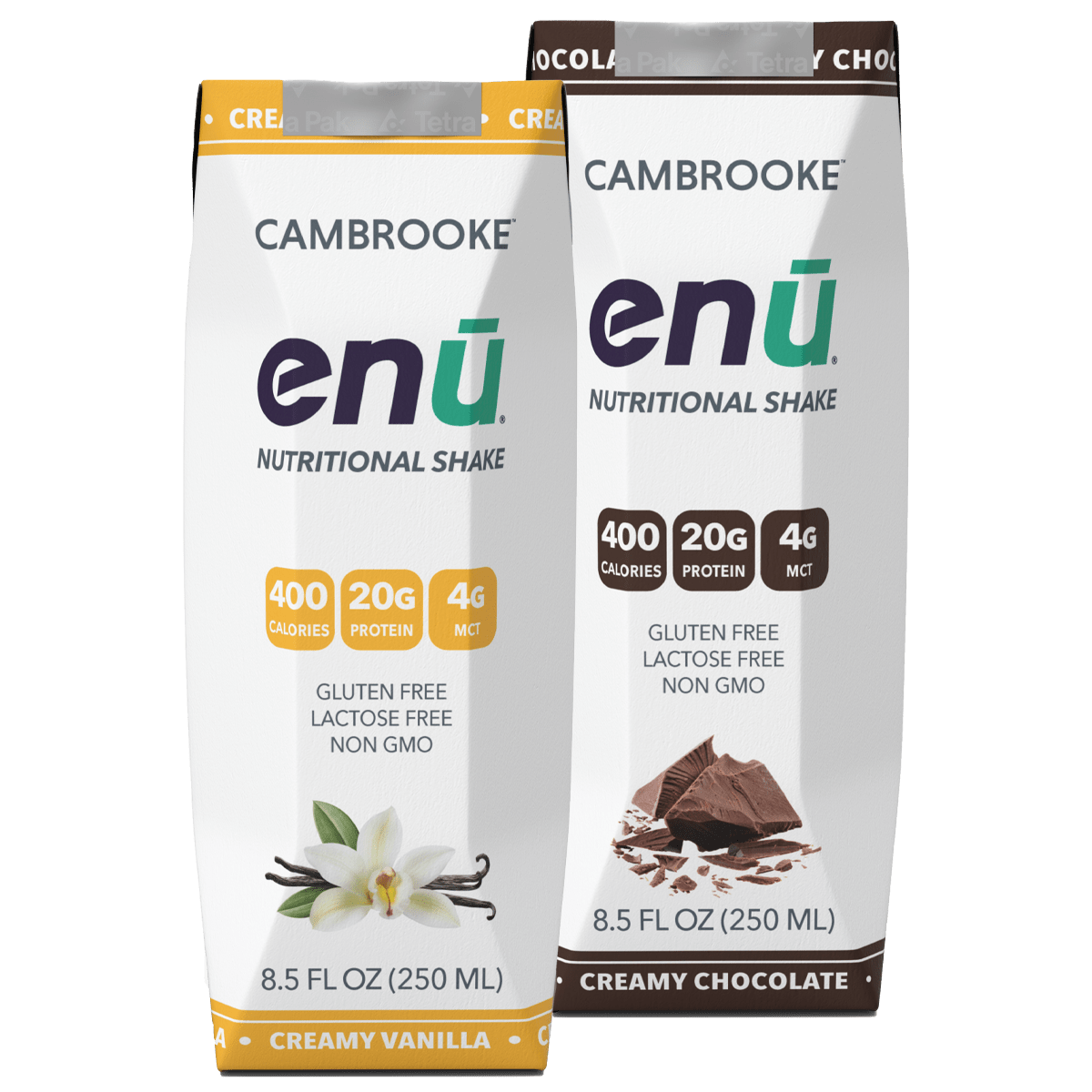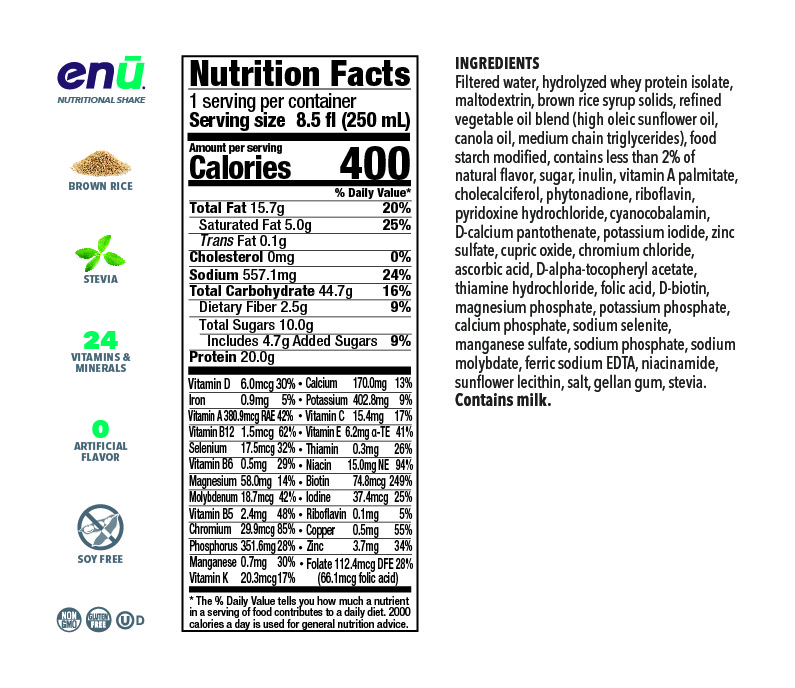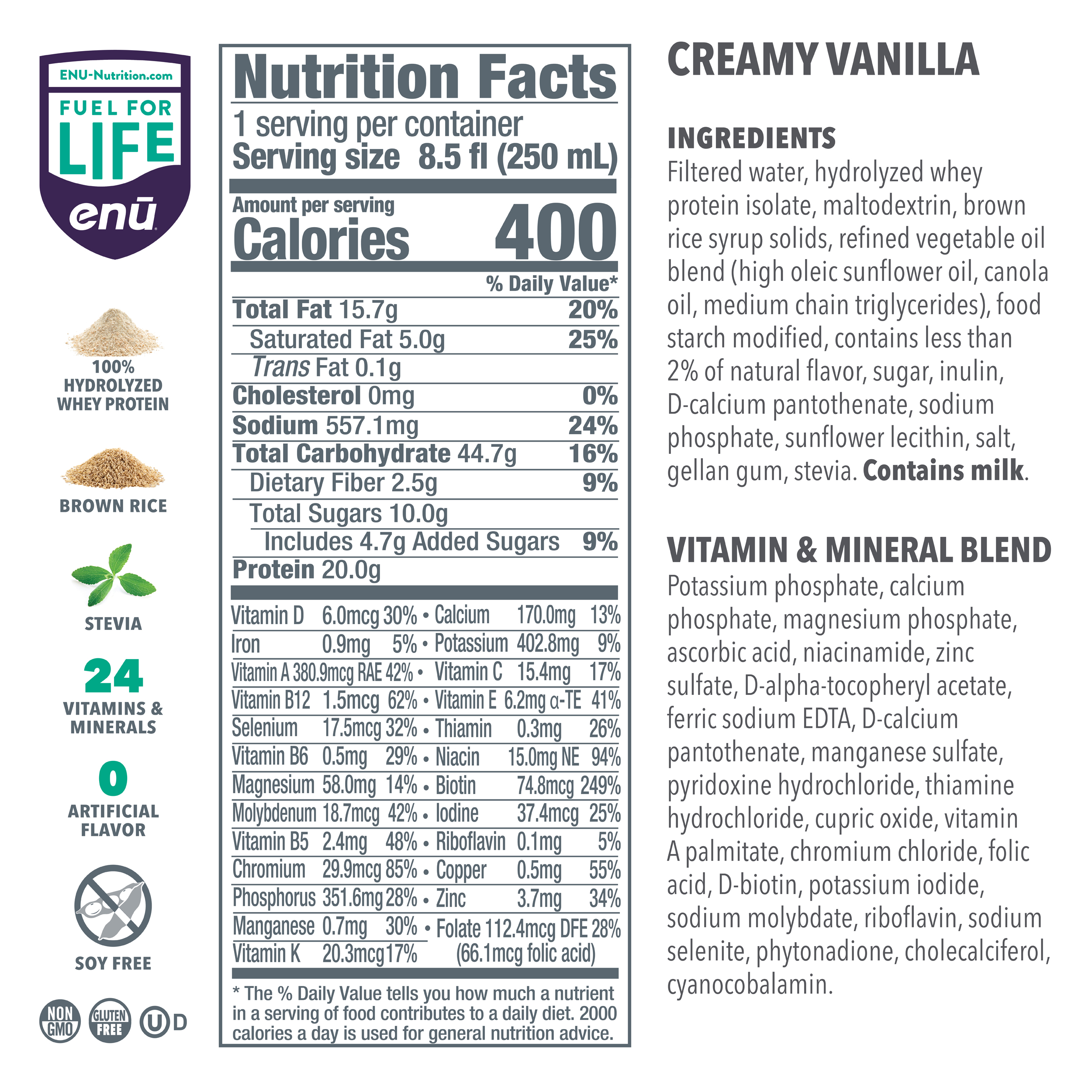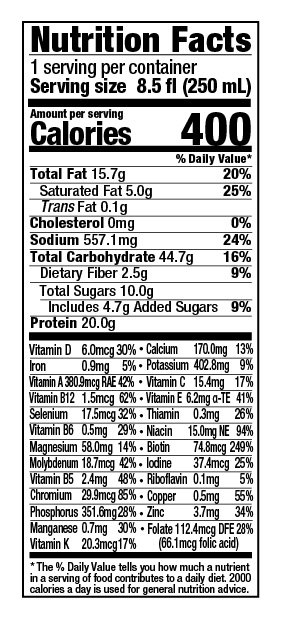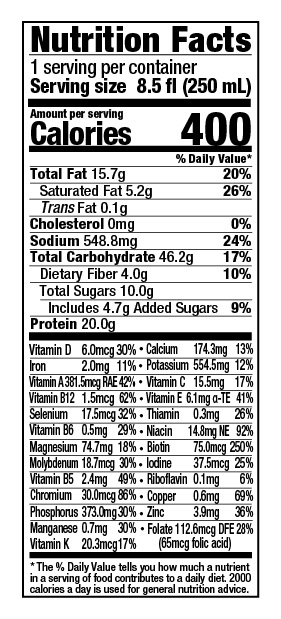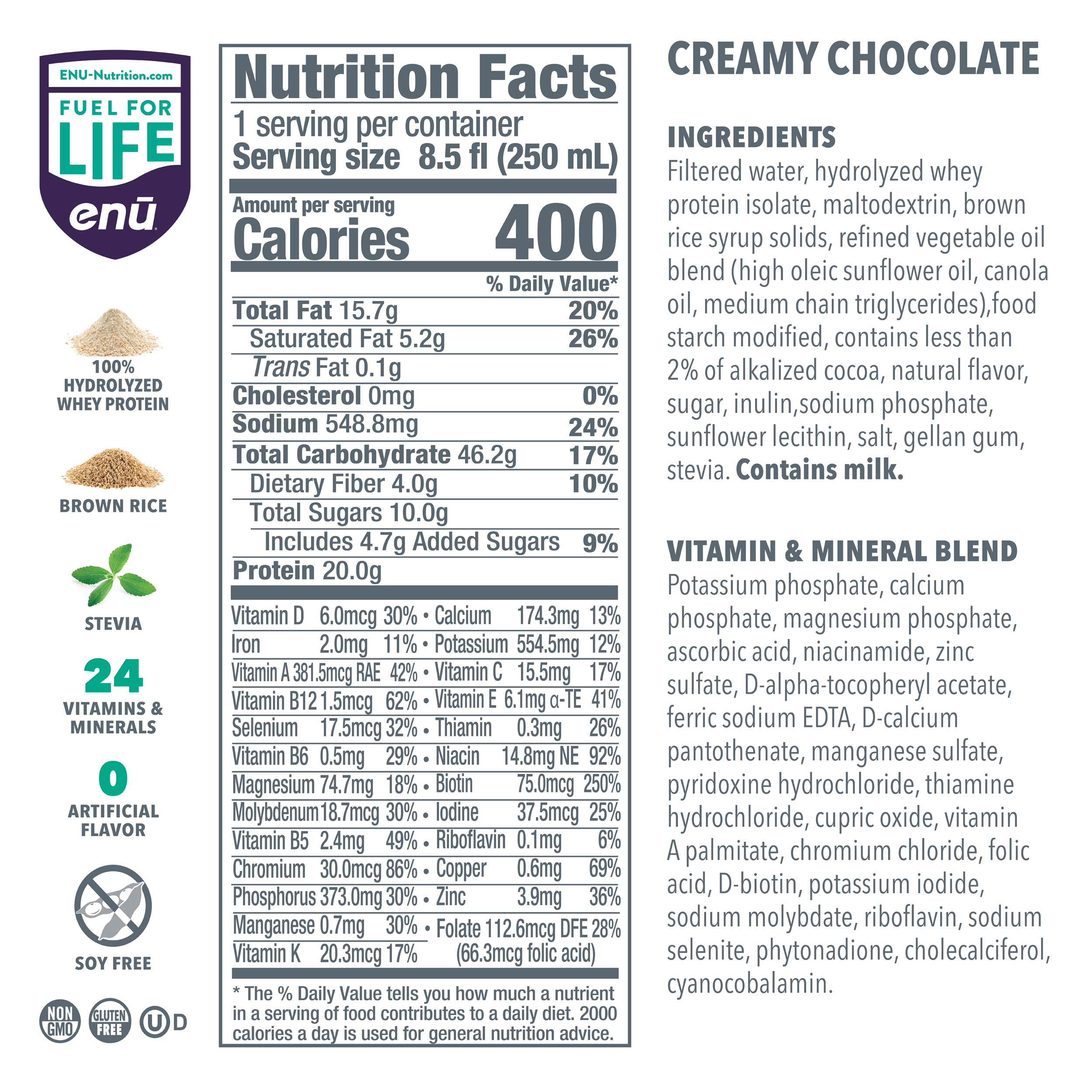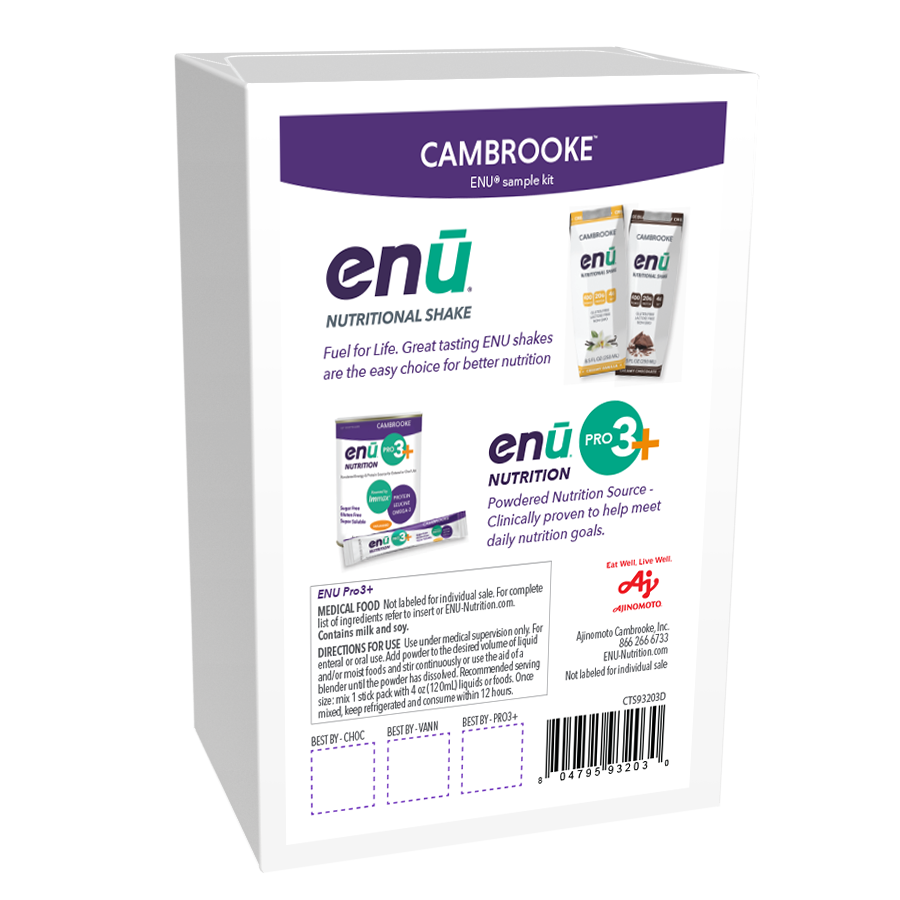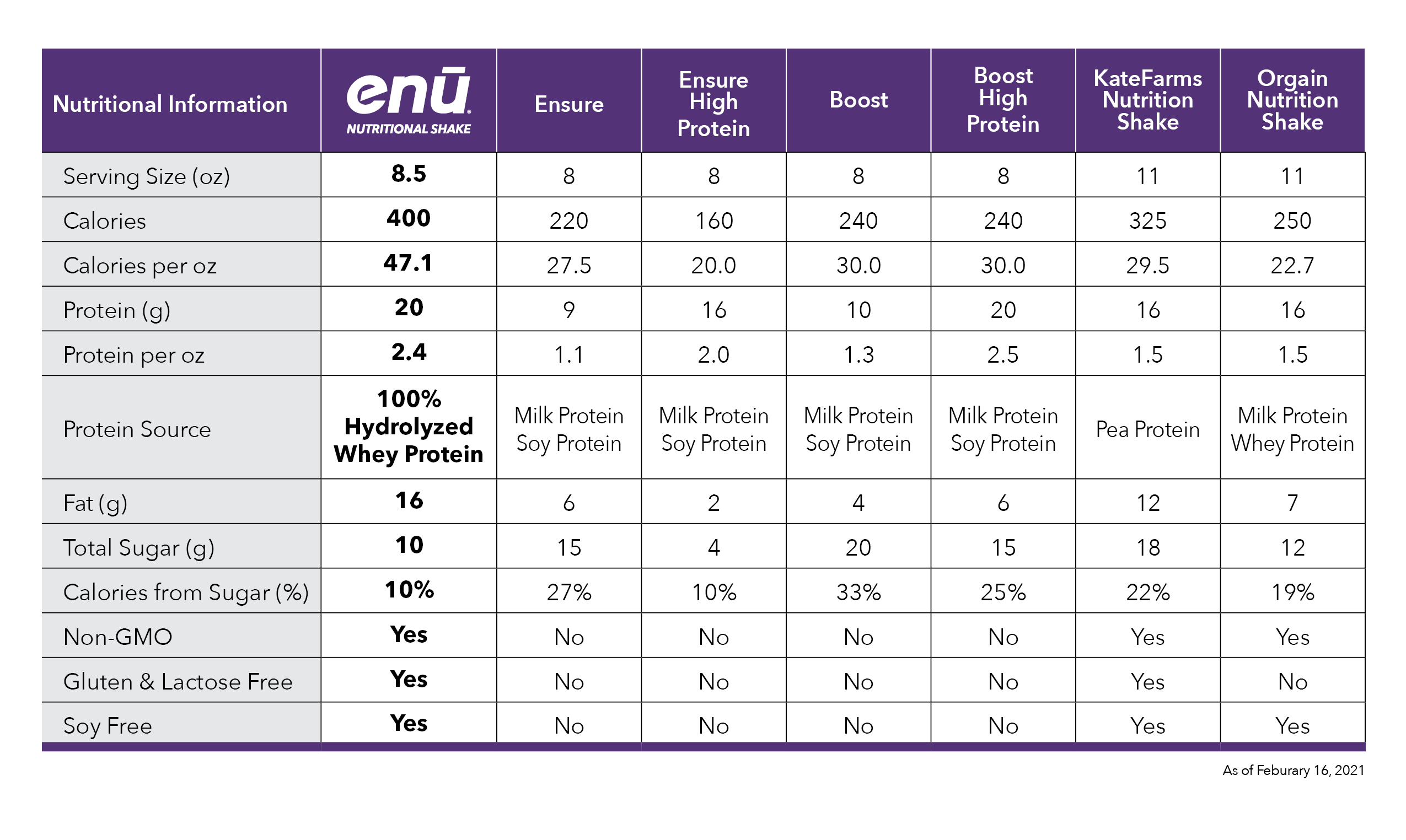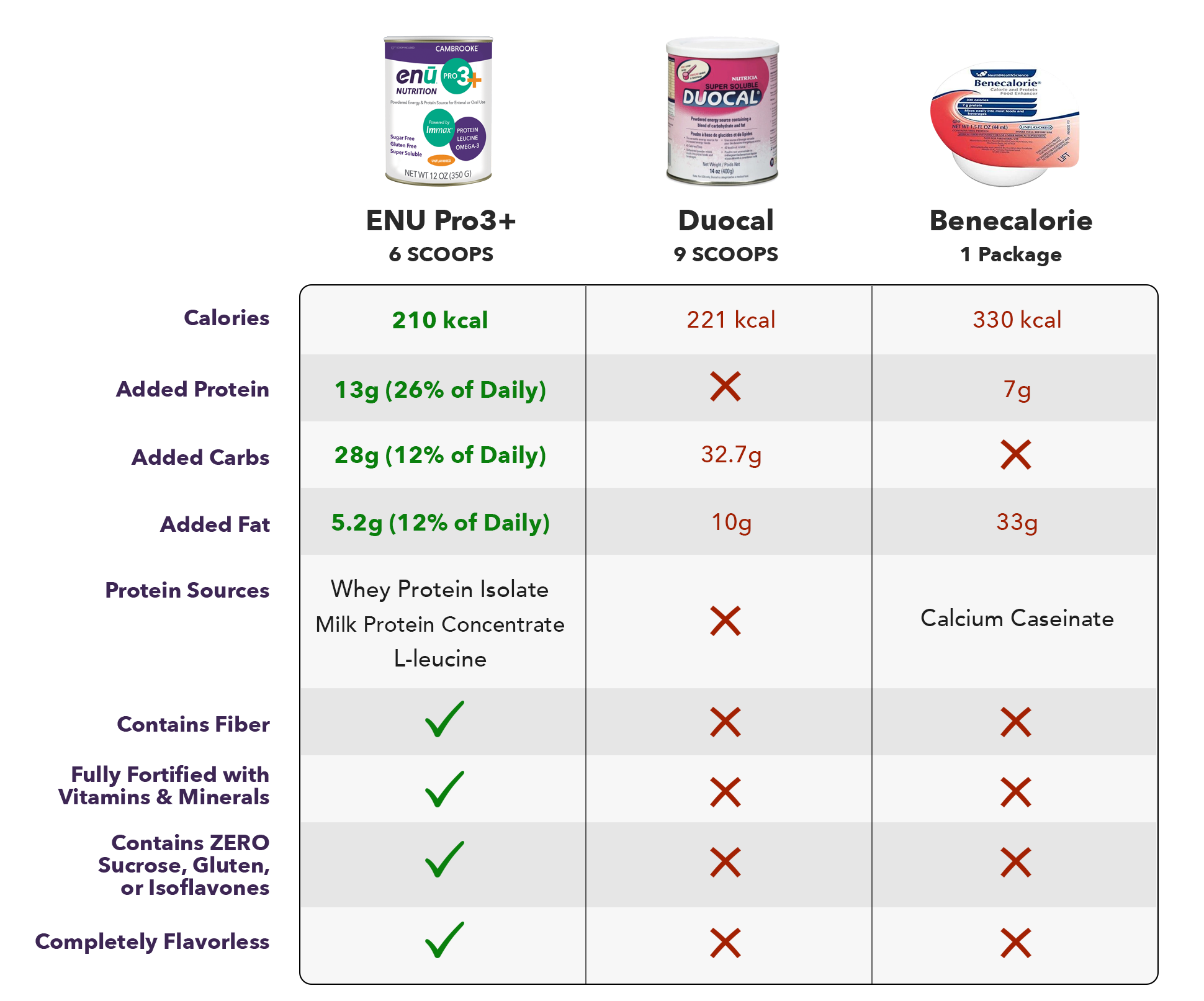
Get a FREE
ENU Intro Pack*
*Just Pay $2.00 Shipping
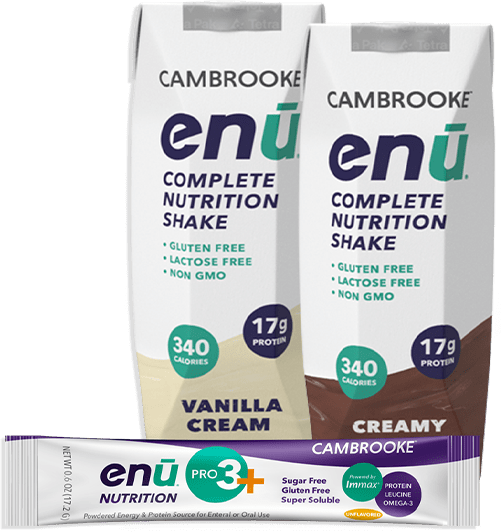
How Can I Gain Weight with Cystic Fibrosis?
Weight can be a tricky thing for people, but it’s an especially thorny topic for those with cystic fibrosis (CF). While many people struggle to lose weight but seem to gain it without much effort, people with CF have the opposite problem; their condition can easily cause unwanted, even severe weight loss – potentially leading to malnutrition and a host of other problems – but they generally have a hard time putting on pounds. All is not lost, however; there are a few ways that you can gain weight, even if you have cystic fibrosis, though none of these medical nutrition support methods is fast or easy. To learn more about how you can gain weight with cystic fibrosis, keep reading as the people at ENU explain.
Gaining Weight with Cystic Fibrosis
Any effort to gain weight when you have cystic fibrosis should address not only your energy needs – generally expressed in calories – but also the nutritional requirements that are often so hard to meet when you have this condition. First, let’s consider caloric intake, then tackle three specific aspects of nutrition that commonly affect patients with CF: fats, protein, and vitamins.
Calories
Though the average caloric intake for a healthy person is about 2,000 calories per day, this number should be much higher for someone with cystic fibrosis. Generally, the energy needs of a CF patient are as much as 50% higher than for others, not only for maintaining a healthy weight but also for gaining weight over time. Because one pound of body fat is worth 3,500 calories, a healthy person has to add 500 calories to their diet to gain one pound per week; those with cystic fibrosis, however, must add at least 750 calories – and that’s assuming they’re already eating enough to keep a stable weight.
All told, these requirements mean that a man with cystic fibrosis has to consume about 3,750 calories to gain weight – up from the 3,000 required to maintain his weight – while a woman should aim for at least 3,250 calories to gain weight – 750 more than the 2,500 required to maintain her weight.
Fats
They may be vilified by the population as a whole, but fats are extremely important for those with cystic fibrosis. That’s because of all the nutrients that tend to go unused in the gut of a person with this illness, fats are the most affected, so they have a prominent place in any discussion about the dietary needs of a cystic fibrosis patient.
Generally, those with CF are encouraged to get at least 40% of their total calories from fats, though the type of fats you eat matter as well. Many patients with cystic fibrosis rely on less healthy forms of this nutrient – saturated fats, especially – instead of the unsaturated sources that can promote heart health and still provide plenty of calories. Common healthful sources of fat include avocados, nuts, and olive oil; adding these ingredients to your meals can help boost calorie and fat intake while improving your overall health.
Vitamins
Because of their difficulties digesting fats, people with cystic fibrosis tend to end up lacking certain vitamins, namely vitamins A, D, E, and K. These vitamins are notable because they are the four fat-soluble vitamins, meaning that they can only be absorbed by the body if they have first been dissolved in fats. If your intestines can’t absorb the fats you eat, they also can’t take in the vitamins those fats contain, which is what leads to the deficiency. Taking daily vitamins can help with this, but only if you get plenty of fat in your diet and take the pancreatic enzymes your doctor has likely prescribed, which will help promote nutrient absorption.
Protein
Without adequate amounts of protein, cystic fibrosis patients can experience a loss of muscle mass that can ultimately hurt their overall health. This loss of muscle tissue can weaken the respiratory muscles and make moving around more tiring, and it can reduce the patient’s overall quality of life as well.
Though there is no set number for how much protein you should consume if you have cystic fibrosis, experts recommend getting about 1.5 grams per kilogram of body weight; it should be noted, however, that this number can change depending on how well you are able to absorb protein when taking your enzymes. Consider trying a protein shake for weight gain or coming up with a tasty homemade protein shake recipe.
Tips for Eating with Cystic Fibrosis
If you have cystic fibrosis, you probably know how difficult it can be to eat enough throughout the day to meet your dietary requirements. Below, you’ll find a few simple tips for getting the calories and nutrients your body needs when you have cystic fibrosis.
- Eat many small meals throughout the day.
- Cook with fatty ingredients, such as vegetable, coconut, or olive oils.
- Plan out your meals for each day ahead of time.
- Keep snacks within reach.
- Incorporate nutritional supplements, such as protein bars and meal replacement shakes.
- Add toppings or condiments to foods to increase their calorie count.
- Prepare meals in advance and store them in the fridge or freezer.
Balanced, Convenient Nutritional Shakes Available from ENU
When you have cystic fibrosis, it’s important that you always have a source of calories and nutrients on hand when you need it. That’s why the meal replacement shakes from ENU are effective for those with CF; they offer a balanced blend of healthy fats, protein, carbs, vitamins, and minerals anytime, anywhere. If you or someone you love has cystic fibrosis and you would like to learn more about how ENU shakes can make gaining weight easier, visit us online or call (855) 266-6733 today.
